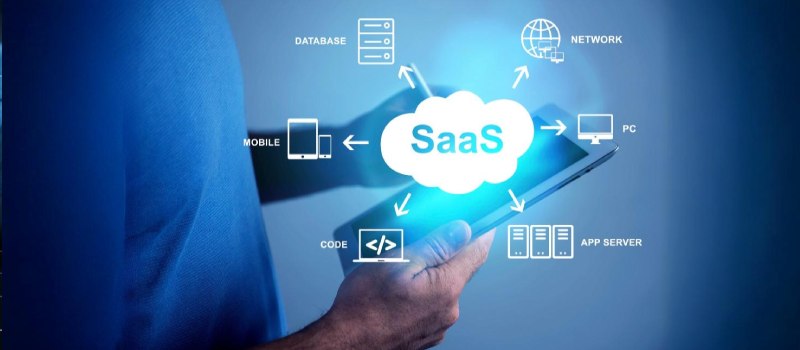
IT services entails supporting and managing technology infrastructure and systems. These services can range from regular technical support to tasks that are comparatively more complex like data management and network security.
Businesses, in today’s digital age, depend on technology very heavily in order to operate effectively and efficiently. From communicating with clients to managing data, technology plays an essential part in the success of all businesses. As technology evolves, it becomes for many businesses a challenging thing to stay updated and make sure they have a system that works well. This is where IT services come in.
Businesses mostly rely on professionals who have skill and knowledge of handling a range of tasks involving technology. The businesses that don’t have a dedicated IT team in-house, rely on third-party providers.
In this blog we will know what IT services mean and take a look at various IT services so that you can develop a clear idea of the scope this has. Let’s dive in.
IT Services: Definition
IT services are about the application of technical expertise along with business knowledge to allow organizations to create, optimize, and manage business processes and access to information.
One can segment the IT services market by the type of skills service providers employ. For example, design, build, and run.
What are the categories of IT services?
There are three main categories of IT services. While the lines between them are often blurred depending on industry and unique business requirements, IT services can divided into the following categories:
- Business process services
- Infrastructure services
- Application services
If you outsource these, they would fall into business process outsourcing (BPO), infrastructure outsourcing, and application outsourcing (AO).
Here’s a list of IT services you can outsource
Go through the examples of IT services that you can benefit from:
1. Network security
If you cannot seamlessly share your data and safeguard it, it becomes almost useless. With proper network security in place you can ensure that and use data for all your strategies and plans. Apart from managing network systems, implementing multi-factor authentication (MFA), preventing outside logins into the system, installing VPNs are also part of this service.
2. Data storage and management
Data storage and management is a crucial example of IT services. Managed business IT services providers set up databases and servers so that businesses access the data efficiently and easily. Along with that, regular data backup service is also added to prevent information loss.
3. Cybersecurity

If you take cybersecurity lightly several things like disruption of your operations, data loss or theft, loss of reliability, trust, and credibility, are a possibility. IT service providers stay updated, hone necessary skills, and own useful technologies to keep their clients and themselves secure. This lets you focus on your core goals without worrying about external threats.
4. Cloud services
Cloud services lets you access everything from anywhere anytime. On top of that, its access control strategies and security protocols are more efficient. Cloud services are an economical and budget-friendly option that is especially helpful if you operate in multiple locations or have remote employees.
5. Network infrastructure management
A business’s network infrastructure generally consists of its internal networking between computers and other devices and its internet connectivity. Network infrastructure management starts from setting up servers and installing firewalls and ends with round-the-clock monitoring of the network to spot and respond to abnormal intrusions and traffic which is especially necessary for businesses with intricate payment systems and remote access.
6. Software as a Service (SaaS)

Software as a Service (SaaS) is about having online access to a software (by subscribing to its services) that is located on an external server. This model has various applications such as calendars, email, file sharing, shared storage, employee management, and so on.
7. IT consulting
IT consulting is an IT service that is all about helping you find out the IT services that are most relevant and beneficial for your organization. IT consultation service providers examine the needs of an organization along with their goals to determine which IT pathway would suit them the best. Afterward, they can also help them deploy some IT services.
8. Mobile device management
According to a report, 1 in 36 devices such as mobile phones used in organizations was classified as high risk. This includes devices that most likely have malware installed, and devices that are jailbroken or rooted. An IT service provider may help organizations implement a bring-your-own-device (BYOD) system through mobile device management (MDM). It allows owners of businesses to enforce security policies in the devices of the employees.
9. Managed IT services

Managed IT services means outsourcing all or parts of the tasks regarding your IT infrastructure maintenance. It also involves having a third party, a managed service provider (MSP), that handles the migration, integration, backup, security, and other actions. MSPs can be on a local platform, cloud-based, or hybrid. The main benefit of managed IT services is that it enables an organization to leave the IT framework in professional hands and focus on their core objectives more.
10. Unified Communications and Collaboration (UCC)
Unified Communications and Collaboration (UCC) is a collection of tools and tech that businesses can use to streamline real-time intra-organization communication. In simple terms, it makes all the communication channels available through one interface. This simplifies communication and helps businesses improve productivity.
11. Disaster Recovery (DR)
Disaster Recovery (DR) service ensures that a company’s data is secure in times of emergency, natural or digital. The strategy entails safely storing a business’s IT infrastructure and data in a third-party cloud computing service. Thus, the business will not have any setbacks if a disaster strikes.
Final thoughts
Now that you have a clear idea about what IT services mean you understand that these services are necessary to stay competitive. IT services now have become the one and only way to maintain daily business operations. Now you have to figure out what IT services your business needs right now and would you outsource it or develop an internal IT team for it. Choosing the right IT services can be a game-changer in today’s business environment.







